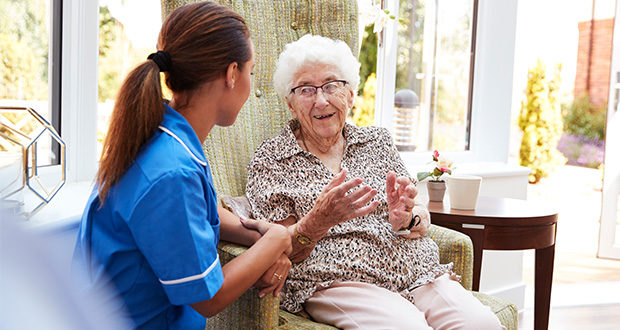A program is breaking new ground in boosting aged care workers' confidence by training them to communicate and interact with residents more effectively.
'The Little Things' project, a partnership with Farnham Street Neighbourhood Learning Centre (FSNLC) and Meaningful Ageing Australia, was created to tackle language and cultural barriers between care workers and residents.
By focusing on pragmatic and polite language techniques, the training kit provides booklets, flashcards, and videos of lectures held by industry experts.
The study, published in the Australian Journal on Ageing, surveyed over 75 care workers and found that close to 85 per cent said their communication with older people had 'improved a lot' after the training.
"Our evaluation of The Little Things program shows this training is a feasible and effective option," the researchers said.
One-third of the care workforce in residential aged care comes from a culturally and linguistically diverse (CALD) background.
But it's estimated the aged care workforce is short on 35,000 staff, a deficit that was exacerbated by Covid restrictions preventing overseas staff from flying in.
Since the borders have opened again, home affairs minister Clare O'Neil raised the migration cap last week to increase the influx of foreign workers.
"The demand for personal care workers has risen dramatically over the past decade, increasing recruitment of staff born outside Australia," the researchers said.
Yet, CALD workers often experience difficulties communicating and engaging well with residents.
"A CALD speaker's pragmatic competence is often less immediately obvious than their grammatical competence," the researchers said.
"But if they fail to follow the sociopragmatic rules of a particular culture, they can appear impolite, and serious consequences may arise from misunderstandings."
Those barriers are not only related to English language proficiency but also to differences in beliefs and understanding of people's behaviours and preferences.
In fact, a national survey revealed that 70 per cent of aged care managers said communication was the most urgent issue for CALD staff.
"Lack of awareness of the cultural rules embedded in routine communication, including 'small talk' and non-verbal signals, may affect how carers recognise changes in the wellbeing of older people," the researchers said.
"Training CALD staff has the potential to increase both care-recipient wellbeing and worker satisfaction during routine interactions while providing care in residential aged care settings."
The researchers said there's a lack of CALD-focused training for care workers, which can lead to staff struggling to build interpersonal bonds with residents and provide good care.
They emphasised that while the program showed potential, more research and training programs are needed to supply adequate resources.
"Particularly those from CALD backgrounds need to develop pragmatic language skills to navigate and negotiate incidental social interactions within a multicultural aged care environment."
"The evaluation supported the effectiveness of The Little Things training in increasing aged care workers' confidence in communicating with residents and their focus on relationship building rather than tasks."
Do you have an idea for a story?Email [email protected]
 Aged Care Insite Australia's number one aged care news source
Aged Care Insite Australia's number one aged care news source

